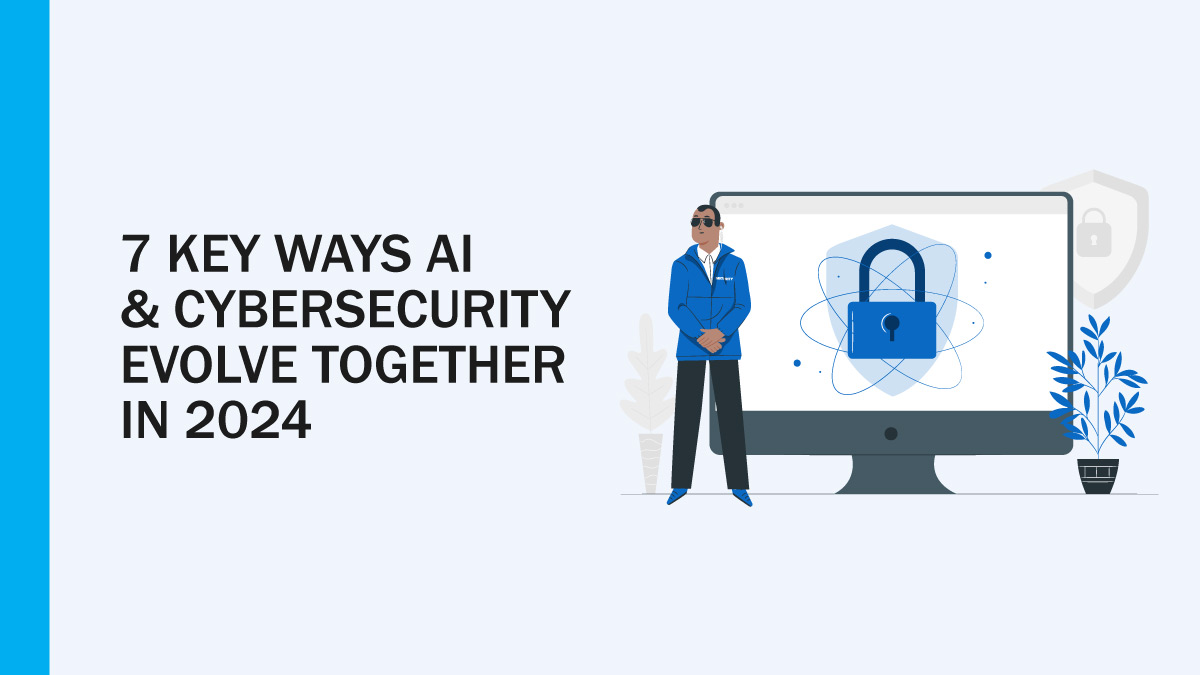As cyber threats grow more sophisticated, AI and cybersecurity have become the ultimate partners, tackling issues that traditional methods often miss. By rapidly analyzing data and spotting risky patterns, AI is helping to protect businesses in ways we couldn’t before. Let’s take a closer look at seven powerful ways AI is reshaping cybersecurity, and what this means for companies everywhere—including here in the Philippines.
1. AI-Powered Threat Detection and Analysis in Cybersecurity
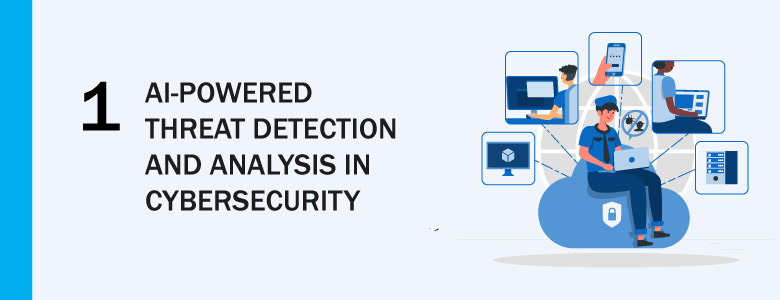
AI has a unique advantage in detecting and analyzing cyber threats quickly and accurately. Using complex algorithms, AI can scan vast amounts of data in real-time, catching signs of an attack as they happen. Unlike manual monitoring, AI can pick up on patterns that might go unnoticed, like unusual login times or multiple failed login attempts.
For example, AI-driven security tools monitor user behavior. If someone tries to access sensitive files at an unusual time, AI can flag this as a possible risk. This early warning system allows businesses to react before damage is done, saving them time and resources.
In the Philippines, where financial services and large businesses are common targets, these tools are invaluable. They help businesses protect data while keeping their daily operations running smoothly.
2. Machine Learning in Cybersecurity for Continuous Improvement
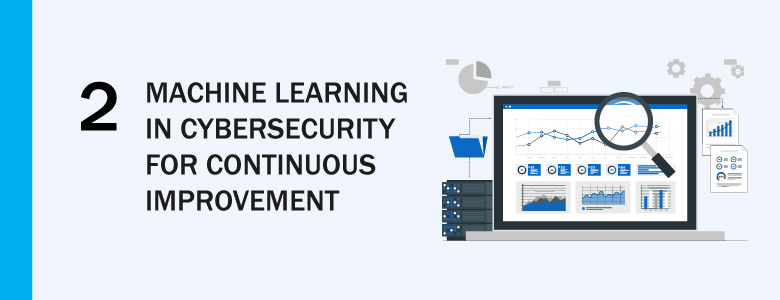
Machine learning, a core part of AI, enables systems to learn from past events and continuously improve. Instead of sticking to rigid security rules, machine learning adapts to new risks by analyzing past data and recognizing trends.
This adaptability helps businesses deal with new forms of malware or phishing attacks without waiting for updates. Small and medium-sized enterprises (SMEs) in the Philippines, who may not have large security teams, benefit from this AI-driven approach. It gives them robust protection without constant manual updates, helping them stay secure in a fast-changing cyber landscape.
3. Behavioral Analytics to Detect Insider Threats
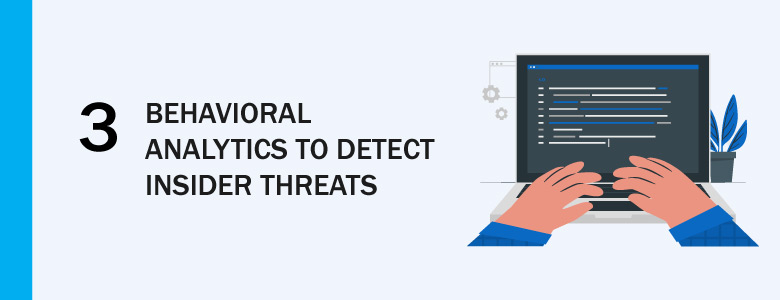
Behavioral analytics, powered by AI, monitors user activity to spot any unusual behavior within an organization. It’s like having a security system that knows what’s normal and what’s not, based on each user’s routine.
For instance, if an employee suddenly accesses data they’ve never touched before or tries to move files at strange hours, AI can raise a red flag. Insider threats—whether intentional or accidental—can be some of the hardest to catch, but this technology makes it easier.
In the Philippines, where social engineering (tricking employees into giving up information) is common, AI-based behavioral analytics provide a strong defense. Businesses can address threats early on, preventing data breaches and maintaining customer trust.
4. Real-Time Incident Response in AI-Powered Cybersecurity
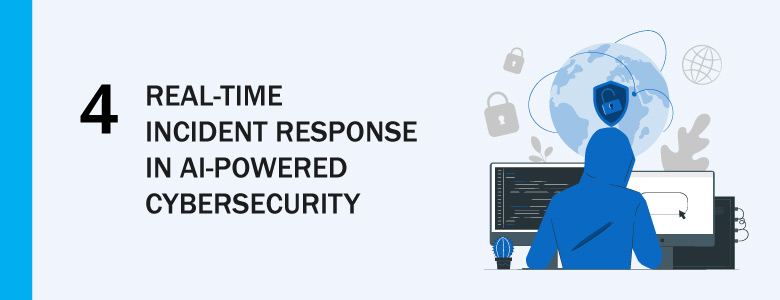
One of AI’s biggest strengths in cybersecurity is how fast it can react to threats. When an attack is detected, AI can quickly act to limit the damage by isolating compromised devices, locking accounts, or blocking harmful files. This response can take place within seconds, often before a human team is even aware of the issue.
Industries like retail and healthcare rely heavily on these automated responses, as they can’t afford to pause operations during an attack. In the Philippines, AI-driven incident response tools help businesses protect both their operations and their customers’ data, providing a faster path to recovery.
5. Predictive Security in AI-Enhanced Cyber Defense
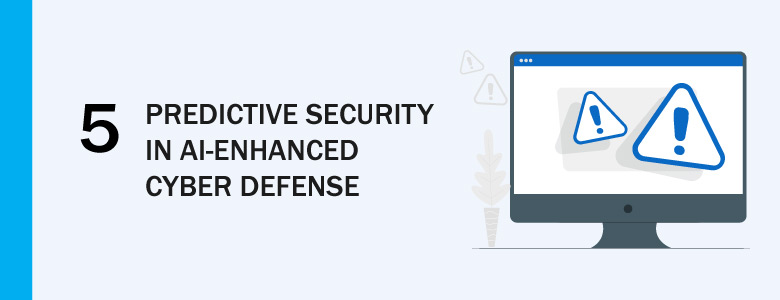
One of the most powerful uses of AI in cybersecurity is predictive security. Instead of waiting for an attack, AI can look for warning signs and prevent it from happening. By analyzing past data, AI spots patterns, like repeated access attempts or software weaknesses, that could signal an upcoming attack.
For businesses in the Philippines, where data protection rules are strict, this proactive approach is essential. It allows companies to handle issues before they become problems, keeping customer data safe and staying compliant with regulations.
6. AI and Cybersecurity in Phishing and Fraud Prevention
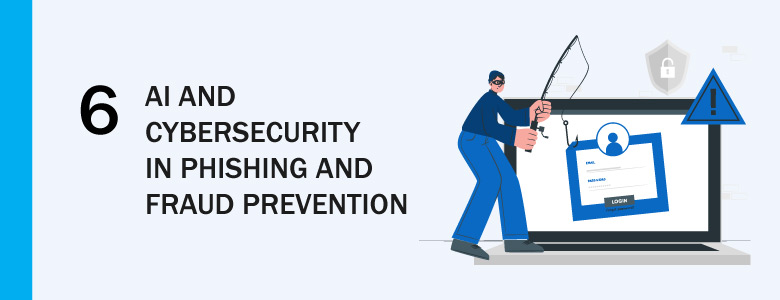
Phishing attacks—those fake emails or messages that trick users into giving up information—are still one of the biggest security risks. AI helps prevent these attacks by examining emails for signs of fraud, like odd links or strange sender addresses.
For example, an AI-powered system might warn an employee before they open a suspicious email, or block access to a dangerous website. This is especially useful for businesses in the Philippines where industries like banking and e-commerce are often targeted. AI-driven phishing protection helps keep financial data safe and customers’ trust intact.
7. AI-Driven Vulnerability Management in Cybersecurity
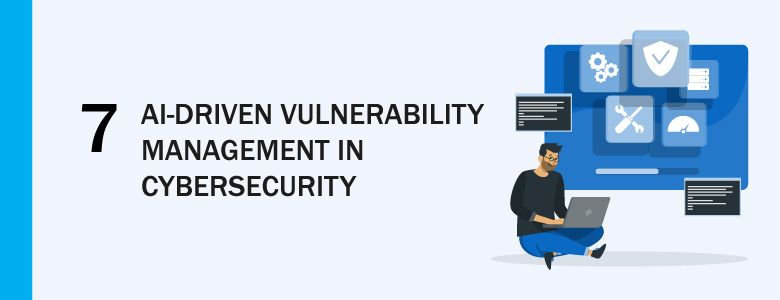
Another key benefit AI brings to cybersecurity is vulnerability management, helping businesses find and fix weaknesses in their systems before attackers do. AI scans devices and software for potential problems, alerting IT teams to address these risks.
For Philippine businesses, which might not have the resources for continuous manual checks, AI-based vulnerability management saves time and keeps them secure. It’s like having an extra set of eyes on their systems, identifying weak points early and making it much harder for attackers to find a way in.
The Future of AI and Cybersecurity: What Lies Ahead?
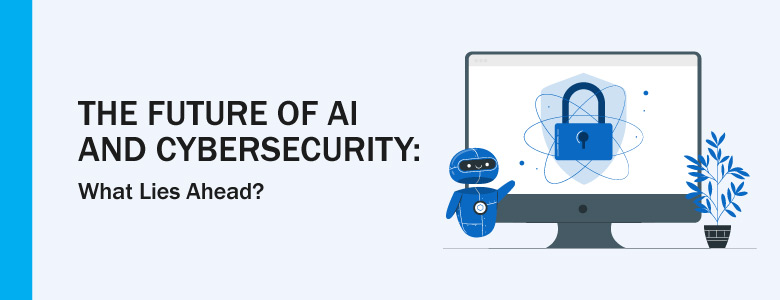
As AI technology continues to advance, its role in cybersecurity will only grow, promising new levels of protection and adaptability. Future developments are expected to enhance AI’s predictive capabilities, allowing systems to detect threats with even greater accuracy before they occur. Innovations like autonomous response systems—AI tools that can instantly act to neutralize threats without human intervention—could redefine the speed and effectiveness of cybersecurity.
In the Philippines and beyond, businesses will likely see AI-integrated cybersecurity solutions become more accessible, allowing even smaller companies to adopt advanced protection. As regulations around data privacy and cyber defense tighten, AI and cybersecurity solutions will be instrumental in helping organizations stay compliant and secure. With continuous learning and evolving adaptability, AI is positioned to be a key component for ensuring a business’ security.
Interested in learning more about the applications of AI and cybersecurity for Business? Take a look at our previous article on AI PCs! You may also contact us at marketing@ctlink.com.ph to set a meeting with us today!

